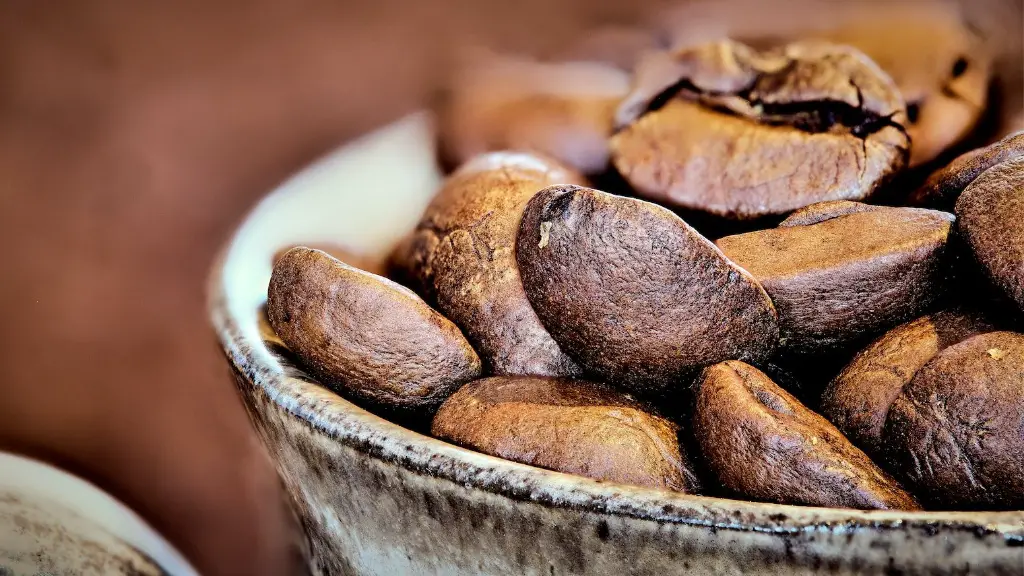For coffee lovers, the question of “what is the latest time to have coffee” carries a lot of weight in the daily decisions that must be made. People who rely on the energizing power of coffee will eagerly turn to its warmth to help them stay awake and productive throughout their day. Each person’s schedule differs but it is important to remain informed and aware of the many potential consequences that come with having coffee too late in the day.
The science behind coffee’s energizing power is simple yet captivating. The active component in coffee, caffeine, assists in delaying the onset of sleepiness and increase alertness by blocking adenosine receptors in the brain. The delicious beverage is an addictive central nervous system stimulant and its effectiveness will depend on the person’s individual physiology.
When it comes to exact timing, the general recommendation from health and wellness experts is to have your last cup of coffee no later than 2 pm. Beyond this time, the caffeine content of coffee can have a delayed effect that can interfere with normal sleep patterns and reduce quality of sleep. The timing is important because the body physiologically starts the natural process of winding down after 2 pm. Drinking coffee and other caffeinated drinks too late in the evening runs the risk of disrupting your natural sleep pattern.
It is also important to remember that drinking excessive amounts of coffee can become an unhealthy habit. If you are reaching 7-8 cups of coffee per day and consuming it too late, it is best to readjust your schedule accordingly. Depending on the particular beverage and preparation you choose, caffeine contents can vary and contain substantially more than what you expect. If you choose to ignore the warnings of health expertsand consume coffee past the recommended 2 pm, keep in mind it can still take up to 8 hours to clear the caffeine from the body.
Another factor to consider when it comes to having coffee too late is the potential for increased tolerance. On average, adults between the ages of 18 and 65 can safely consume up to 400 mg of caffeine per day without any negative effects. People who consume large amounts of caffeine every day, however, can begin to build an immunity towards the energizing properties of coffee. At this point, more caffeine would be needed to achieve the same desired effects.
Coffee Quality
The effects of coffee can also be influenced by the quality of the beverage itself. Coffee contains several different antioxidants that benefit our health in many ways. Depending on the variety and roast, it can contain zinc, magnesium, calcium, and other healthy minerals. But if these nutrients haven’t been extracted properly, you won’t get the same effect. That is why it’s important to learn about the source of the bean and all of the steps of the entire preparation process from the roast to extraction.
In addition to ensuring the quality of the bean, it is also worth taking into account the different types of brewing and preparation methods that exist. Depending on the time of day, you may want to keep your intake of coffee to a minimum and opt for a light roast with a lower caffeine content such as a cold brew instead of a regular cup of hot joe.
If you still want to enjoy the taste and aroma of coffee late in the day, consider decaf options or herbal infusions that are naturally caffeine free. Rooibos and honeybush tea are ideal alternatives as they can provide a great flavor while also contributing to overall health in the body.
Duration between Consumption
Keeping in mind that everyone’s schedule and needs are different, it is important to recognize the relation between caffeine tolerance, personal preferences, and sleep habits. Generally, it is recommended to limit your intake of coffee to 4 to 6 hours between each session so that you don’t over-consume caffeine. This will allow you to monitor your intake and ensure that you never go past the latest safe time to drink coffee.
If you routinely have coffee late in the day make sure to adjust your coffee intake throughout the day so that your total caffeine intake does not exceed 400 mg. You can also start tracking the time you drink coffee and keep Dairy on any changes you have noticed in your energy levels. Focus on staying aware of your body’s needs and you should easily be able to determine whether you should keep coffee drinking to an earlier time in the day.
Health Risks
When consumed in healthy dosages and at the right times, coffee can be enjoyed without consequence. But like all things, there can be some serious health risks when consumed in large amounts or at improper times. Those who must stay alert, awake, or energized throughout long periods may opt to drink large amounts of the beverage which can cause potential harm. Some of the potential health risks associated with drinking way too much coffee too late in the day include a rapid heart rate and increased blood pressure.
These symptoms can be severe and should be monitored by a healthcare professional. Furthermore, drinking coffee this late in the day can disrupt normal digestive processes and reduce blood sugar levels. This can affect optimal energy and feelings of wellbeing throughout the day.
Know Your Limits
The bottom line is that it is essential to remain informed and aware of your own individual body’s specific needs when it comes to drinking coffee late. Every person is unique and will respond differently to when, where, and how much coffee they drink. The best advice is to experiment, track your intake, and pay attention to how you feel. Learn to listen to your body’s needs and, if necessary, make adjustments to your routines as needed.
In conclusion, while there is no exact universal answer to the “what is the latest time to drink coffee” question, the general consensus is that 2 pm is the recommended latest time to drink coffee in order to preserve a healthy balance in your body and prepare you for a restful and restorative night.



